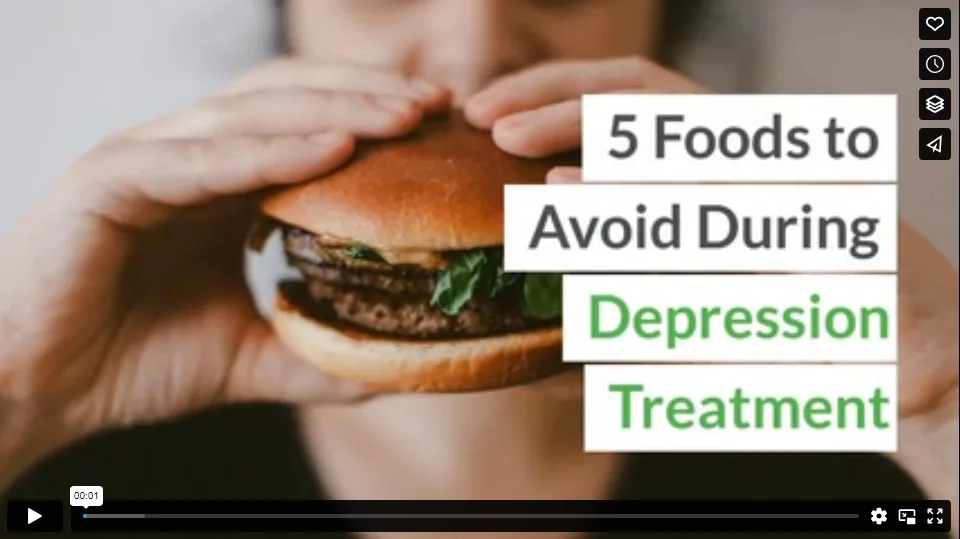Research on schizophrenia, major depressive disorder, and bipolar disorder have found a strong association between these mental health issues and systemic inflammation. Dietary inflammation even increases your risk of developing depression. While many people favor inflammatory foods and beverages, especially when dealing with depression, changing your diet can improve your symptoms. Here are the pro-inflammatory foods to avoid:
1. Processed Sugars and Artificial Sweeteners
Whether you are eating cake, ice cream, chocolate bars, drinking soda, or consuming the diet or sugar-free version, these sweet treats irritate the bacteria in your digestive tract. The bacteria will erode the lining of your gut, allowing bacteria and toxins into your bloodstream and contributing to systemic inflammation, harming your body physically and mentally.
2. Simple Carbohydrates
Even though these don’t taste as sweet, your digestive tract breaks them down and processes them the same way as sugar. White bread, potatoes, rice, and pasta are key offenders that cause spikes in your blood sugar, resulting in the same problem as if you ate doughnuts for breakfast.
3. Saturated and Trans Fats
While the unsaturated fats found in olive oil, nuts, seeds, and fish are healthy and can help prevent diseases, other fats are highly inflammatory. You can find trans and saturated fats in nearly all fast and fried foods, margarine, most processed foods, and prepackaged baked goods. Unfortunately, red, fatty, and processed meats all contain saturated fats. These fats are inflammatory and cause blockages in your heart and circulatory system, increasing your risk of heart disease, heart attacks, and strokes.
4. Alcohol and Other Mood Affecting Substances
In addition to leading to poor sleep and increasing inflammation, alcoholic beverages are depressants. They affect your central nervous system, reducing arousal and stimulation by slowing down messages between your brain and the rest of your body. This is why you are less coordinated, struggle to concentrate, and cannot react quickly in unexpected situations when you drink. Other depressants include benzodiazepines like Valium or Xanax, GHB, and Kava. Marijuana acts as both a stimulant and depressant.
5. Caffeine
Since depression can cause fatigue and exhaustion, caffeine seems like the ideal solution, but some caffeinated drinks can be unhealthy. Energy drinks specifically have incredibly high levels of caffeine and contain guarana, processed sugars, and fake sugars, which are all troublesome for depression. They can even cause irregular heart rhythms. Coffee is the better choice when comparing caffeine consumption. If you are used to drinking a morning cup of coffee, you can continue to do so without impacting your depression.
If you want to limit or reduce your caffeine intake or try something new, herbal tea could be a great option. Many can soothe your nerves, help you sleep better, or improve your overall mood.
Mood-Boosting Foods
These foods are not only not inflammatory themselves. They have anti-inflammatory properties that will counteract the effects of the foods listed above and boost your mood.
- Fish is high in omega-3, a fatty acid linked to decreased inflammation, healthier hearts, and lower depression rates. If you are undergoing depression treatment in Seattle, your doctor might tell you to shop for your dinners at Pike Place Market or take a fish oil supplement.
- Berries such as strawberries, raspberries, blueberries, or blackberries contain antioxidants called anthocyanins which have anti-inflammatory properties.
- Leafy greens like spinach, chard, kale, asparagus, and brussels sprouts contain vitamin E. It’s an antioxidant and anti-inflammatory powerhouse, like berries. Combine the two in a smoothie for a quick dessert and an anti-depression kick.
- High-fiber foods such as fruits, vegetables, and whole grains will deliver the most fiber in your diet. They are anti-inflammatory by nature, encouraging heart health and keeping your gut healthy.
- Fermented foods include kimchi, kombucha, sauerkraut, or yogurts help your gut heal and maintain the healthy bacteria to fight off local inflammation and digestive issues. Don’t be tempted to justify alcohol as a fermented food. It’s the exception to the rule and does not promote gut health.
Don’t Forget Your Vitamins
Specific vitamins and minerals can help or hinder depression as well. For example, low vitamin D levels can contribute to your depression or seasonal affective disorder. Increasing your time outdoors or taking a supplement can help rebalance your mood. Low folate or vitamin B12 can also impact your mood. You can find these in legumes or beans, dark leafy greens or vegetables, fish, and an assortment of fruits, which is also why the food listed above is mood-boosting.
The good news is that you don’t need to cut all inflammatory foods out of your life entirely. The key is just to eat everything in moderation. If you really want that cupcake, balance it by having an anti-inflammatory nutrient-rich dinner beforehand. The first step is to be aware of how these foods affect your body and mind and how often you eat them. Then, you can cut back if you’ve noticed a decline in your mood or need clinical depression treatment.
Video

